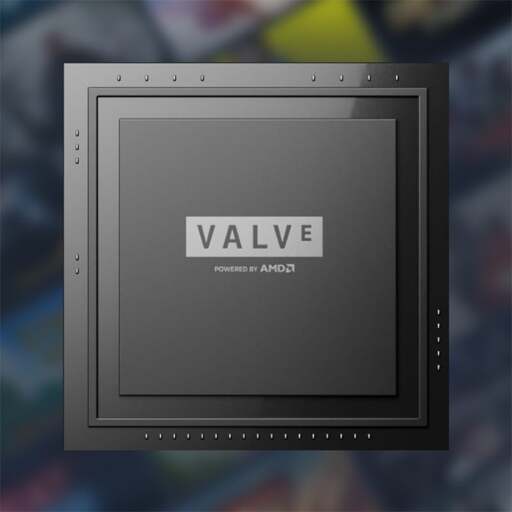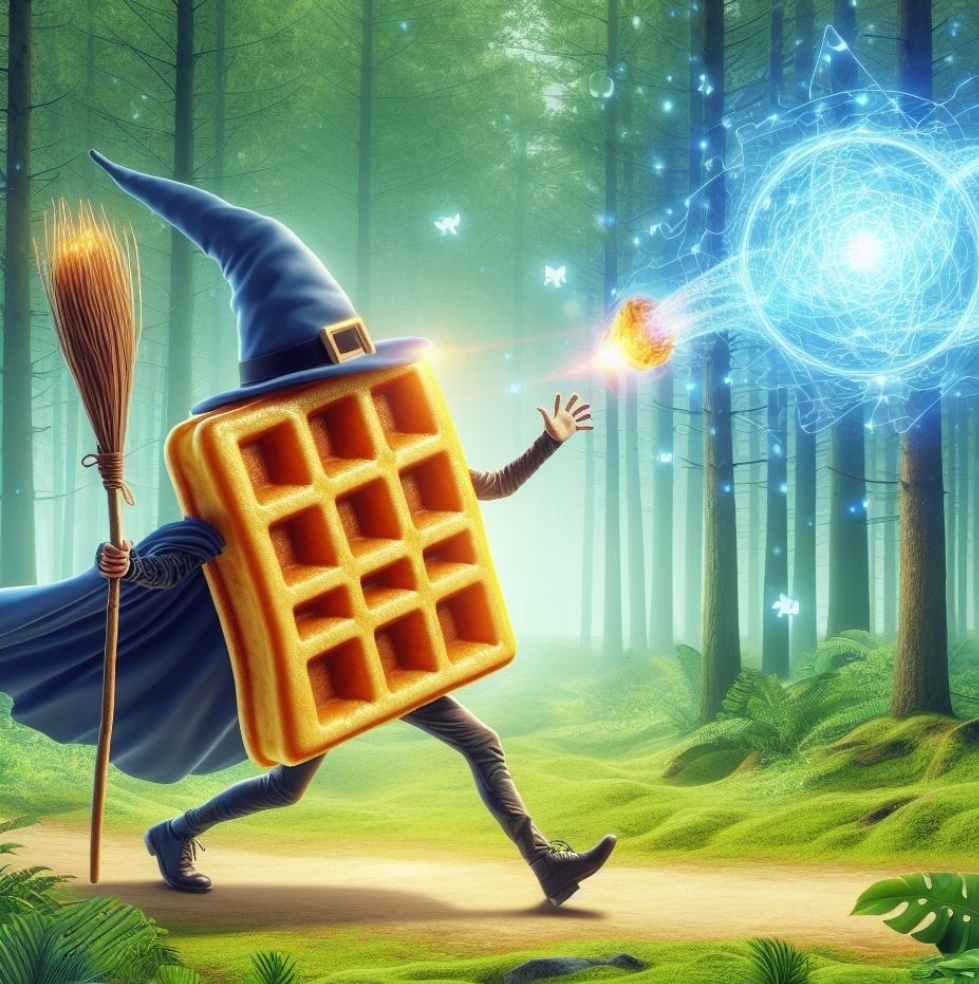New steam controller expected to release alongside it. This also should push back estimates of when to expect a Steam Deck 2, since valve is probably putting most of their hardware efforts towards this instead.
V A L V E T I M E
Let it happen when it happens. If you hype it, you’ll just be disappointed when it doesn’t come out when you expect it to.
HL3 will be released day and date w the new console ;)
As someone still using Steam Controller on the daily, I’m most excited about Steam Controller 2. The original remains the best controller I have ever used.
I still have mine in it’s original box sealed. It’s my retirement plan.
Don’t know about their next console, but I’d love that new Steam Controller. Hop to it Valve!
Valve’s logo is pretty much the only one that makes me excited when I see it
Gabe please do mobile phone.
What if… Valve is the company GrapheneOS is trying to make a phone with.
Holy shit that would be amazing.
Dawg, sign me up - no cap.
Okay but I want it to be like an Xperia Play, with a full-on controller built into it somehow!
Steam N-Gage
I really, really wouldn’t trust this website. I found a glaring error in it, and then an even more glaring one in the article it links about the rumoured Valve standalone VR headset:
Curiously, this newer SoC features two fewer cores than the older ones (6 vs. 8) but architectural improvements will help plug this gap.
It’s not too surprising considering McVicker states it’ll run on an ARM-based CPU, much like Deck. With a lower power draw, this ought to keep battery life reasonable where a traditional x86 variant would drain it in minutes. The trade-off is that computational output isn’t quite on par with your usual desktop CPU, unless you’re talking about Apple’s M Series specifically.
I’m a simple man - I see AMD, I buy
It’s possible this could be for their upcoming VR headset, which had some standalone features
Ngl I would expect the steam deck 2 to use a arm64 cpu
I didn’t think Translation layers were nearly good enough for that, otherwise why wouldnt more people use macs for gaming?
apple silicon has specific changes to amd64, and some extra instructions to help with x86 translation afaik (1 of the main things i think is how memory is laid out is different somehow? so every memory access needs extra clock cycles to accomplish in standard arm64)
but in general, rosetta2 is incredible: very little performance loss… i thiiink it’s something like 2-10%, which is made up for by the cheaper cores
from what i understand, graphics is more of a problem… metal just isn’t well supported - i think the standard thing is you have to do direct x <-> dxvk <-> vulkan <-> moltenvk <-> metal, which is a huge overhead and is far from perfect in its translations
1 of the main things i think is how memory is laid out is different somehow? so every memory access needs extra clock cycles to accomplish in standard arm64
It’s down to “memory ordering”, as different cores interact with RAM there’s rules that govern how those cores see changes made by other cores. ARM systems are “weak”, so rely on developers to be explicit about the sharing, while x86’s “Total Store Order” is considered “strong” and relies on the hardware to disentangle it all so software can make assumptions and play fast and loose.
You can do software emulation of strong memory ordering on a weak system, but it’s slow. What Apple did was provide a hardware implementation of strong ordering in their ARM chips, and Rosetta enables that when running x86 code, so users don’t encounter that slowdown.
amazing! thanks for the clarification
I assume the gpu translation issues are Mac specific and not all arm processors?
that’s correct. part of the reason mac doesn’t have the same gaming community as linux with proton does afaik
because of drivers, i use a radxa orion o6 with an amd gpu as my main desktop and it is actualy pretty good for gaming
In the case of Macs it’s not an issue with the ARM architecture, but with Apple. Since they dropped support for some libraries a few years ago, new versions of wine (and proton) stopped working on Apple Silicon. That’s the main and pretty much only reason why you can only play like 13 games on newer Macs.
As for Linux, ARM support is still in its early stages. From my experience it’s not even ready for regular daily use. Might depend on the device though. M1 Macbooks run pretty good with Asahi.
They created the Game Porting Toolkit a while ago that basically mimics WINE but via Rosetta 2 (their x86>ARM translation layer). I just don’t think a lot of devs have taken them up on it and for some ridiculous Apple reasons they don’t let consumers just try games.
Also absolutely no idea what you’re talking about with Linux on ARM. The RaspberryPi has existed for ~15 years at this point, the platform is far more mature than Windows on ARM and rivals macOS for support. ARM isn’t a monolith though, like amd64 is. So, thanks to a lack of working with Linux devs, the Snapdragon Elite X isn’t particularly well supported yet. This is also why Asahi isn’t actually a super fair comparison, because Apple doesn’t release anything so it’s had to fully reverse engineer everything that a CPU/GPU does.
They created the Game Porting Toolkit a while ago
Hmm… Must have missed that. I’ll need to take a look. Might be the exact same thing I mentioned and I just had no idea it was already released.
The RaspberryPi has existed for ~15 years at this point, the platform is far more mature than Windows on ARM and rivals macOS for support.
I wrote “From my experience” and “Might depend on the device though.” Also, RaspberryPi is not a daily use device. At least not for the vast majority of people.
If Linux works on ARM for other people - great. I’m hoping to be able to switch to it sometime in the near future. However, the last time I tried it was horrendous. A lot of programs I use were completely unavailable, with no compatibility layer that I know of. That was about 2 years ago.
That said, I also tried Windows 11 on ARM around the same time and it was great. Practically everything worked out of the box and worked flawlessly. It was basically the same experience as on amd64.
Thanks for the info. I assume when you say that they dropped support for some libraries, you mean those libraries are no longer being maintained for the new Mac arm processors?
I’m not super familiar with how portable different libraries are against similar architectures, but assume the major issue is Mac arm chips differ enough from the mass market that progress on Linux arm won’t directly correlate to any progress with macs?
After introducing Metal (their own proprietary graphics api), Apple killed OpenGL support and never implemented Vulkan support. Almost every single video game nowadays uses either DirectX (Microsoft’s proprietary API) or Vulkan for 3D graphics. 2D games use OpenGL and Vulkan. OpenGL and Vulkan are both open source and cross platform.
Windows supports everything, Linux everything except DirectX, and MacOS (for Apple Silicon devices) only supports Metal. You can still play OpenGL games on Intel-based Macs. Steam tells you which games won’t work on recent Mac systems.
In order for a game to run on ARM Macs, it has to either be ported to Metal, or there needs to be a compatibility layer like Wine and Proton. However, neither of these two work, since Apple no longer supports OpenGL or Vulkan. Theoretically, it is possible for people to write a new compatibility layer, specifically for Metal. The problem is, nobody wants to, because it’s a lot of work (as usual with development for Apple devices), and you never know when Apple may decide to drop support for some other libraries/APIs/drivers.
Additionally, Apple seems to be working on their own Metal translation layer. Leaks show impressive performance in Cyberpunk 2077. However, nobody knows what the availability will be like or when it releases.
You have literally no idea what you’re talking about:
Game Porting Toolkit is Apple’s new translation layer released on 6th June, 2023. Game Porting Toolkit (GPTK) combines Wine with Apple’s own D3DMetal which supports DirectX 11 and 12. This is a less user-friendly method of installing Windows games on Apple Silicon Macs compared to CrossOver or Parallels, however it unlocks the ability to play many DirectX 12 games. A lot more games work using GPTK, however, games that use anti-cheat or aggressive DRMs generally don’t work.
Not only has Apple well and truly released that, but Codeweavers also develops a compatibility program based off WINE called Crossover.
Edit: You’re also massively wrong about DirectX on Linux, DXVK and VKD3D both work to run various versions of it on Linux. Did you think WINE/Proton only works for OpenGL/Vulkan Windows games?
You’re also massively wrong about DirectX on Linux, DXVK and VKD3D both work to run various versions of it on Linux.
I very clearly wrote that Linux does not support DirectX. Which is 100% true, no matter how you look at it. Just because there are translation layers, it doesn’t mean Linux ‘supports DirectX’, because it doesn’t. It supports Vulkan, which DXVK and VKD3D translate DirectX API calls to.
Let’s say you can’t read Spanish, but you hire a translator to translate a text for you. Now you can read it. Does that mean you can suddenly read Spanish?
There have literally been changes to the kernel for DXVK/VKD3D/WINE to run better. Linux is just a more piecemeal system rather than Windows/macOS having a more holistic approach to an OS.
Look, I have a Mac, I like the ecosystem but have a handful of Linux machines (including my laptop) so I’m, ahem, not the average Mac user. You go in the App Store and enjoy whatever games are there. Or hear that on Steam they’re less expensive and go through that… then discover that there’s a boatload of Mac games that simply won’t work on your OS because they are 32 bit and Apple dropped support for that in 2019 (meaning that from 2019 no Mac, even Intel ones, can run those games). Then, there’s the Crossover option: a paid product that will allow you to install Steam for Windows and any game compatible with that platform. It’ll use GPTK for compatibility and it’s a big supporter of WINE, so a purchase helps open source…
But: how likely do you think that an Apple user will go that far off the beaten path?
You should check out some of Jeff Geerling’s videos. He’s gotten Portal 2 working on a RaspberryPi5 with an external AMD card through Box86. If Valve invested the same programming/engineering team into that project the way they have with WINE/Proton then it would likely end up just as polished. I super don’t agree that they will switch to ARM though, AMD are working wonders with low-power gaming.
Ig when the Steam Deck 2 releases it becomes fine?
Hmmm… Not a fan. Any new box should have at least ML upscaling, ML ray reconstruction, and support for cooperative vectors. RDNA3 is PS5-level tech. Hope Valve picks either RDNA4 or UDNA for the gpu of whatever comes next
yeah as of now this looks like a pretty weak showing.
I agree, but I would buy this for my kids instantly.

















